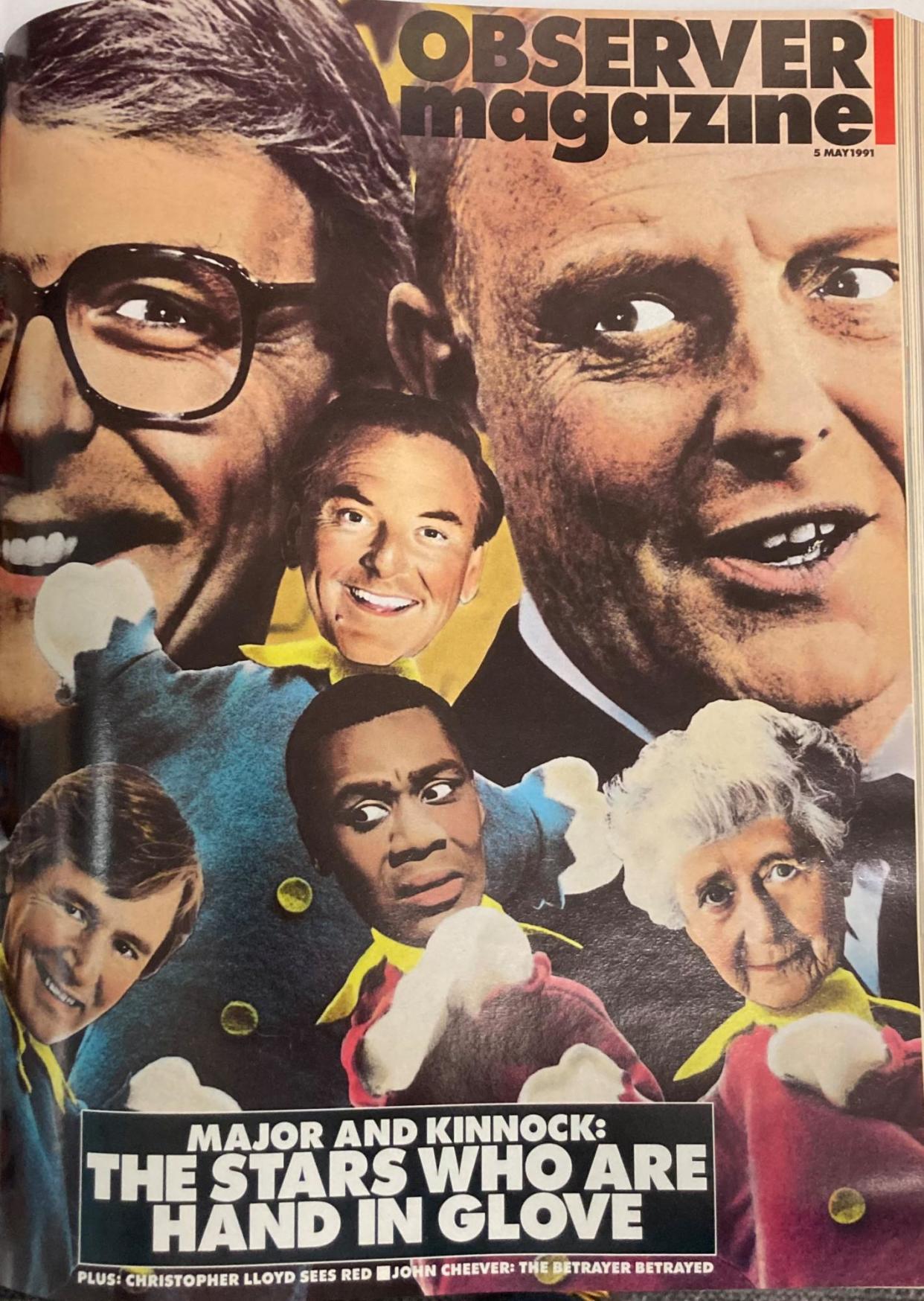Celebrities reveal their political allegiances, 1991

‘Getting showbiz personalities out of the political closet is rarely easy,’ the Observer commented on 5 May 1991, exploring the awkward relationship between politics and celebrity. It managed to out a few: Gyles Brandreth and Glenda Jackson were standing for election; John Major with his music-hall heritage was PM, and there was a new, albeit muted, hint of glamour to British political life.
Tories admitted Margaret Thatcher had not helped seduce creatives: ‘She’s read one book, a Frederick Forsyth thriller’
The ideological battle lines were clear. ‘Thespians and alternative comedians go for Labour,’ the article declared, with Kinnock-supporting quotes from Ben Elton, Lenny Henry and Prunella Scales. Meanwhile, ‘Sports stars and light entertainment comedians of the old school support the Tories.’ ‘Majorettes’ included Bob Monkhouse, Kenny Everett – and Steve Davis, joking about ‘potting reds’. A Tory spokesperson admitted Thatcher had not helped seduce creatives to the Tory cause: ‘She’s read one book, a Frederick Forsyth thriller, and you’d have thought its interest would wane after six readings.’ There were a few true blue exceptions: William Roache, proudly pictured outside the Rovers Return with Mrs T, and Bill Wyman fretting about 98% tax: ‘I lean politically towards what is best for me.’
On the stump with Brandreth in Chester, TV fame and funny jumpers were seen as a drawback, not an advantage, by local Tories even though he was ‘as wholesome and family oriented as say, a portion of chicken nuggets’. Jackson, meanwhile, deployed ‘resigned contempt or derisive laughter’ when asked if her celebrity impressed voters, declaring: ‘It’s not a popularity contest.’
Would either relish the pantomime drama of parliament if elected? Actor and Labour MP Andrew Faulds (formerly ‘Captain Jet Morgan, hero of Journey into Space’) said: ‘The only benefit to having been an actor is that you know how to phrase and wait for a laugh.’ Andrew Rawnsley, still of this parish, had doubts: ‘When Glenda Jackson is stuck in a debate at 2am addressing two other MPs and a Hansard reporter, she’s going to find it all very different from the RSC.’ Jackson’s 23 subsequent years in parliament suggest she didn’t mind at all.

 Yahoo News
Yahoo News 
